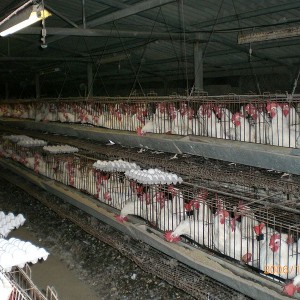Excerpted from the Seattle Weekly:

Image: Wikimedia Commons
Both Marilyn Watkins, policy director for the Economic Opportunity Institute, and Eric de Place, a senior researcher at the Sightline Institute, recommend closing as many of the 567 tax loopholes currently afforded by the state to various corporations and industries.
Watkins is particularly opposed to tax breaks for the farm industry. While farmers are hardly the stereotypical Wall Street fat cats, Watkins says the largest beneficiary is industrial agribusiness, not mom-and-pop homesteads.
“We almost completely exempt farms from taxation in our state,” Watkins says. “That made sense back in ’30s when it was family farmers slammed by the depression and in financial crisis, but there’s not a good reason in this day and age to exempt big agribusiness from taxation.”
According to de Place, several farm tax loopholes border on absurd. They include caveats for the propane used to heat vast chicken coops, and fine print that favors bull semen traders, he says.
“You name it there’s an exemption,” de Place says. “They live in this weird tax-free environment, Maybe that makes sense from public policy standpoint, I don’t know, but do we really need tax-free bull semen? Is that hugely important?”
More To Read
May 19, 2025
A year of reflections, a path forward
Read EOI Executive Director's 2025 Changemaker Dinner speech
March 24, 2025
Remembering former Washington State House Speaker Frank Chopp
Rep. Chopp was Washington state’s longest-serving Speaker of the House
February 11, 2025
The rising cost of health care is unsustainable and out of control
We have solutions that put people over profits
